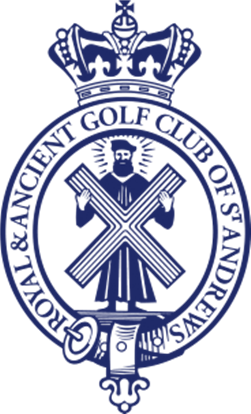
The Colonial Cup - History
In 1754, 22 “Noblemen and Gentlemen of the Kingdom of Fife” formed the Society of St Andrews Golfers, which in 1834 became The Royal and Ancient Golf Club of St Andrews.
“The Noblemen and Gentlemen above named, being admirers of the ancient and healthful exercise of Golf, and at the same time having the interest and prosperity of the ancient city of St Andrews at heart—being the Alma Mater of Golf—did, in the year of our Lord 1754, contribute for a Silver Club having a St Andrew engraved on the head thereof, to be played for on the Links of St Andrews.”
Nearly 250 years later, in 2003, South African Members of the Royal and Ancient Golf Club of St Andrews, Dumpy Dyer and Alistair Forbes, played a social match at Kingsbarns against Canadians Marc Campbell and Rick Rose, ostensibly to fill the “quiet time” between the Calcutta Cup and Vase weeks of the esteemed Autumn Meeting.
Reflecting on their match back in the Big Room of the prestigious Clubhouse, they resolved to establish an annual match between Canadian Members—captained by Rick Rose—and South African Members—captained by Alistair Forbes. They agreed to assemble teams of eight for a two-way challenge the following year.
Such was the interest in the first match in 2004, won by South Africa, that it was decided to include a team from the Antipodes—referred to as the “Anzacs”—for the 2005 event. The format was changed to a three-way foursomes match-play arrangement, and the teams were expanded to 16 players each, involving 48 Members of the Club. Alistair Forbes commissioned a trophy, affectionately known as “Charlie,” and thus, the Colonial Cup was born.
The Colonial Cup matches are characterised by fierce but friendly competition, in keeping with the spirit of the colonialists who inspired the event. Such was the Anzacs’ ambition to grace the winner’s podium that, in 2006, under the captaincy of Gerald Rawson from Royal Melbourne, they enlisted five-time Open Champion Peter Thomson to represent them. Still unable to field a full team, the Anzacs, in a sleight-of-hand move, also selected Alan Jackson, arguably South Africa’s finest amateur golfer, and Chip Gow, a scratch-handicap American golfer, and finally won the trophy for the first time that year.
Initially, the Gentlemen of the R&A did not recognise the Colonial Cup arrangement, despite its reputation as a superb social event through which Anzacs, Canadians, and South Africans formed lasting friendships. Nevertheless, the founders persisted, committed to the belief that the event brought Members of different nations together. They were obliged to hold the now exceptionally popular event on nearby courses such as Kingsbarns and Panmure.
Panmure became the most frequent venue with its superb dining facilities, as the post-match dinner had assumed as much significance as the match itself. During this “wilderness period”, Charlie had to reside in less salubrious accommodation than the R&A Clubhouse and was housed in Cleveland House in Murray Place when not on parade at each annual event.
Interestingly, the first-ever Colonial Cup dinner was held at The Dolls House, in the quaint Bothy establishment off Church Square in St Andrews. The founders later sought a venue that better reflected the values of the Colonial Cup, and the Hotel du Vin and Scores Hotel became the chosen locations for several subsequent dinners.
Each year, the post-match dinner grew in significance. In the absence of notable speakers, a tradition developed whereby each team put forward one of their number to entertain the participants with amusing stories and after-dinner witticisms.
New Members of the R&A from Canada, South Africa, and the Anzacs were encouraged to participate in the Colonial Cup, and many credit the event as the foundation of friendships across these nations. The furnace of match-play competition between 48 Members in eight matches—and the conviviality of the evening dinner—provided the perfect environment for lasting kinships, in the spirit of the Noblemen and Gentlemen of the Kingdom of Fife.
In 2021, the then Secretary of the Club, Martin Slumbers, acknowledged the affection and loyalty participants held for the Colonial Cup and offered to give Charlie a permanent home in the Clubhouse. Befitting his status, Charlie spent his first year in the Secretary’s office, as he had not yet achieved the luminary status required for inclusion in the Trophy Room.
For the first time, in 2022, the matches were moved to the New Course, and a new tradition was established: the dinner would henceforth be held in the Clubhouse.
Participants—along with a number of extra players affectionately known as the “Bomb Squad” (after the Springbok rugby bench players of the same name)—now gather each year in the Big Room for another emerging tradition: the Ryder Cup-style draw, in which Captains put out their pairings to be matched by the other Captains in rotation.
From humble beginnings in a quiet corner of the Kingdom of Fife, four modern-day Noblemen and Gentlemen have continued the legacy of the ancient fellows of the Royal and Ancient Golf Club of St Andrews, establishing an indelible addition to the Autumn Meeting calendar—the Colonial Cup.



